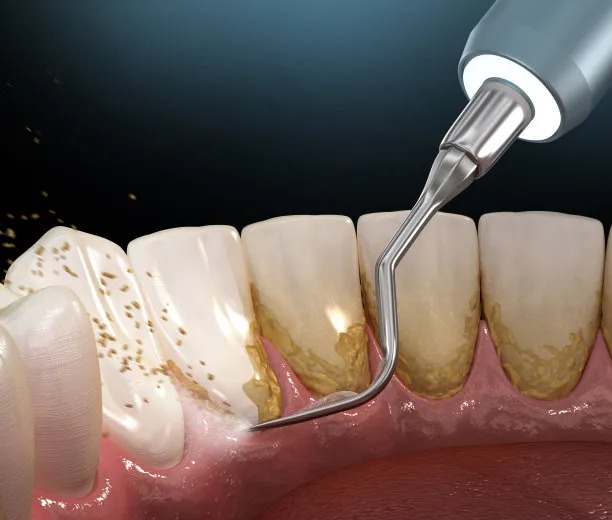Essential Precautions to Ensure a Successful Root Canal Treatment for Optimal Dental Health Preservation
Summary: Root canal treatments are vital procedures aimed at preserving dental health and alleviating pain caused by infected or damaged teeth. Ensuring success in these treatments involves adopting essential precautions before, during, and after the procedure. This article discusses four key aspects to maximize the effectiveness of root canal treatments: selecting a qualified dental professional, understanding the importance of prior diagnostic tests, adhering to post-treatment care, and managing pain and discomfort effectively. Each section provides insights into these crucial elements, emphasizing their relevance in achieving optimal outcomes for patients dental health.
1. Choosing a Qualified Dental Professional

One of the most critical aspects of successful root canal treatment is selecting a qualified dental professional. It’s essential to choose a dentist or an endodontist who specializes in performing root canals. Endodontists undergo additional training focused on this particular dental procedure, making them highly skilled in treating complex root canal cases. Patients should look for recommendations and read reviews to ensure that the dentist has a good track record.
Communication plays a vital role in choosing the right professional. Patients should feel comfortable discussing their concerns and preferences with their dentist. Clear communication can lead to a better understanding of the procedure, which can alleviate anxiety. The professionals approach to patient care can significantly impact the treatment’s success.
Lastly, patients should inquire about the technologies and techniques the dental professional employs. Modern dental practices often utilize advanced imaging and sanitization equipment, improving the success rate of root canal treatments. Ensuring the facility follows strict hygiene protocols can provide peace of mind for anxious patients.
2. Importance of Diagnostic Tests
Prior to undergoing a root canal, thorough diagnostic tests are essential for adequate treatment planning. These tests typically include X-rays that allow the dentist to visualize the extent of the damage and infection, which is vital for making informed decisions on treatment strategies. Understanding the tooths condition aids in predicting potential complications during the procedure.
Additional examinations, such as vitality tests, can determine whether the affected tooth is alive or dead. This information can guide dentists in evaluating the necessity of various treatments and can highlight any underlying issues that need addressing. Diagnostic tests not only help pinpoint the problem but also allow the dental professional to tailor the procedure to each patients unique needs.
Moreover, meticulous examination can minimize the risk of incomplete treatment. By understanding the complexities of the root structure through these tests, the dentist is better equipped to ensure that all canals are thoroughly cleaned, shaped, and disinfected, thus maximizing the likelihood of a successful outcome.
3. Adhering to Post-Treatment Care
Post-treatment care is crucial for ensuring the continued health of the tooth after a root canal. Patients must strictly follow the dentists aftercare instructions, which often include avoiding hard foods for a specific period and maintaining excellent oral hygiene. Good hygiene practices, such as brushing and flossing, help prevent reinfection and promote healing.
Monitoring symptoms after the treatment is also essential. While some discomfort is normal, patients should watch for severe pain or swelling that may indicate complications. Prompt communication with the dental office can facilitate timely intervention if needed and prevent more significant issues from developing.
Additionally, scheduling a follow-up appointment with the dentist is critical. This follow-up allows the professional to assess the treated tooth and ensure everything is progressing as expected. Regular checks can help identify any emerging problems early on, maintaining optimal dental health.
4. Managing Pain and Discomfort Effectively
Pain management is another vital component of a successful root canal experience. Patients are encouraged to discuss their concerns regarding pain with their dentist before the procedure begins. Understanding the anesthesia options available, such as local anesthesia or sedation, can ease anxiety and make the process more comfortable.
Post-procedure, over-the-counter pain relievers can be effective in managing discomfort. Dentists usually provide guidelines on appropriate medications and dosages to alleviate pain while minimizing side effects. Patients should adhere to these recommendations for optimal results.
Additionally, using cold compresses can help reduce swelling and numb the affected area. Incorporating soft foods into the diet for the first few days after the treatment can also minimize discomfort when chewing. By following these pain management strategies, patients can experience a smoother recovery and better outcomes from their root canal treatment.
Summary:
In summary, the importance of essential precautions in ensuring successful root canal treatments cannot be overstated. By choosing a qualified dental professional, undergoing thorough diagnostic tests, adhering to post-treatment care, and managing pain effectively, patients can achieve optimal dental health preservation. Each of these aspects interconnects to form a holistic approach to dental care that enhances the likelihood of a pain-free and successful treatment.
This article is compiled by Vickong Dental and the content is for reference only.



